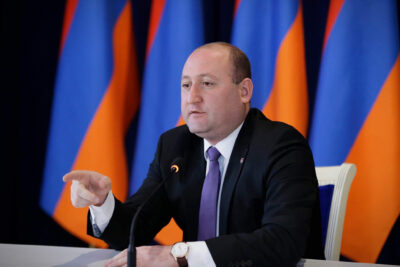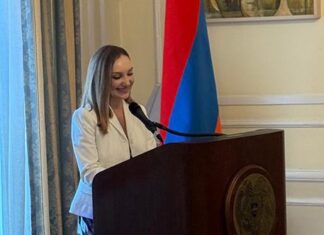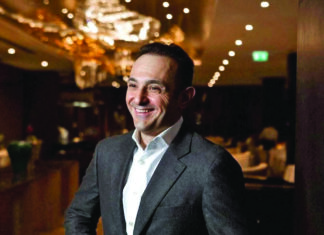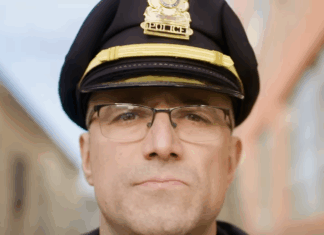By Ashot Vavyan
The prophets are persons sent by God, transmitting His words, called to certain mission by the Almighty. They are the men of future, whose words and actions are not accessible for the surrounding, and for understanding them certain period of time is needed. This is the reason for which they are not perceived in their own surrounding, and even are subjected to persecutions. “A Prophet is without honor only in his hometown, among his relatives, and in his own home,” says Jesus in the Gospel.
In the opinion of the Italian writer, historian and scholar Giovanni Guaita, His Holiness Karekin I is a person playing a prophetic role in the contemporary history and in the history of the Armenian Church. The words of praise about Vehapar were not so abundant in his homeland, while his merit was greatly appreciated abroad. The greatness of the Catholicos of all Armenians was noticed by the “poetess of all Armenians,” Silva Kaputikian, who mourned thus when he left us. “It’s a great pity that the 131st Catholicos left us so early, and so tragically was interrupted his speech, that sounded so beautifully upon his lips demonstrating the most valuable abilities of the Armenian mind and language. Fortunately, his deeds remained beneficial for the nation — numerous and various works which are written testimonies of his extraordinary talent and his Armenian soul. They have much to do in this money-worshiping and demoralizing times.”
Son of Hagop and Ovsanna Sarkissian, the Catholicos of All Armenians Karekin I, of Blessed Memory, was born in the Syrian town of Kessab, populated by Armenians. He studied theology in Oxford, where he defended in English his famous graduation thesis, “The Council of Chalcedon and the Armenian Church.” As the dean of Antelias Seminary, as the Prelate of Iranian-Indian or Eastern Prelacy of the North America, everywhere under his leadership was recorded success in the national-ecclesiastical life. Thanks to his efforts, the Catholicosate became a member of the World Council of Churches, where he took leading positions.
His time coincided with some of the most difficult times for the Great House of Cilicia, namely the Lebanese civil war, but Vehapar, with is wisdom, managed to safeguard the Armenian community. During those years, under bombing attacks, many implementations were made in the religious, national, educational, cultural and constructional spheres of the community. In the communities everywhere he found warm reception. He was enjoying a great reputation, sympathy and respect also among the religious and political figures of other nations, which was very beneficial for the church and the nation. As a famous figure of the ecumenical and interreligious movement, his exhortation to his people was to “keep pace with the world without going astray from our road.”
His Holiness was a man of faith, idea and action, he never sought to obtain an office or a special position. Eventually he was nominated for the Catholicos of the Great House of Cilicia and then as Karekin II as Catholicos of All Armenians. But there was much to be done, and unfinished works were left, too. Vehapar was assured that the people of Armenia needed him and were waiting for him. But Vehapar’s coming to Armenia was the Lord’s project, which was testified in the Mother Cathedral in the sermon devoted to the 10th anniversary of his passing, when His Eminence Archbishop Khajag Barsamian, as if under the Heaven’s influence, said: “In historically hard times His Holiness answered to the God’s call, came to shepherd his flock, he came to serve his people as a Patriarch of All Armenians. The yoke was heavy, but remembering Moses’s commandment to Joshua, telling him, “be courageous, because the Spirit of God is with you,” he came to be a Brave Shepherd. Inspired by the Holy Spirit he continued to guide his flock and lead to the Source of the Light.”







